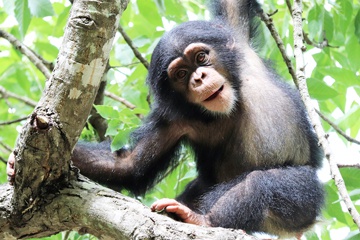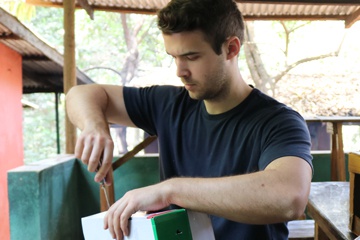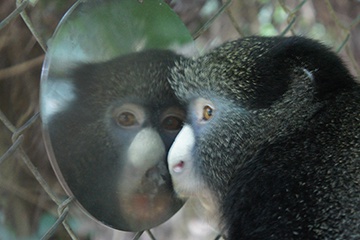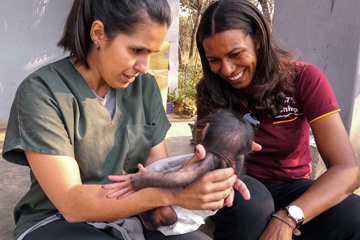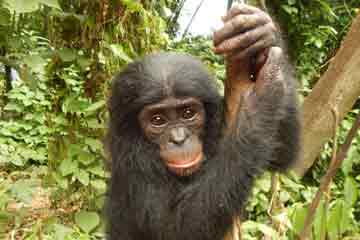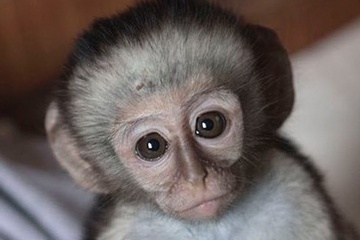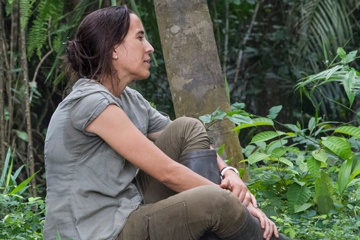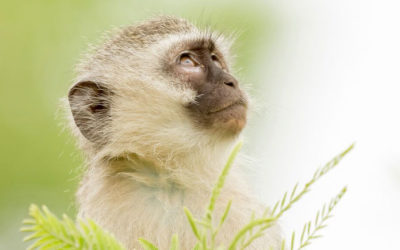Protecting Primates in the Democratic Republic of Congo
By Natasha Tworoski
The Democratic Republic of Congo is home to three PASA sanctuaries: Lola ya Bonobo, JACK (Jeunes Animaux Confisques au Katanga) and the Centre de Rehabilitation des Primates de Lwiro (CRPL).
Lola ya Bonobo is the world’s only orphaned bonobo sanctuary and was formed in 1994 when violence was just on the brink of starting again in the DRC. Founder Claudine Andre took on the presumed impossible task of raising infant bonobos, a task that had never been successfully achieved before, and did it while literally dodging bullets. The sanctuary now is home to 75 bonobos and has successfully returned a group to the wild. They will be releasing a second community of bonobos back to the wild within the year. Bonobos are an ape species found only in the DRC.
JACK is a chimpanzee sanctuary located in Lumbumbashi in the southeastern region of DRC. Started in 2006, they have rescued 45 confiscated chimpanzees. 40% of surviving chimpanzees, an endangered species, occur in the DRC and both the bushmeat trade and the pet trade are a constant threat. Focusing efforts on poaching has to be worth it for a country with so many other problems. Additionally, law enforcement must have an establishment with experienced caretakers in order for these animals to have a chance. JACK has provided just this for chimpanzees.
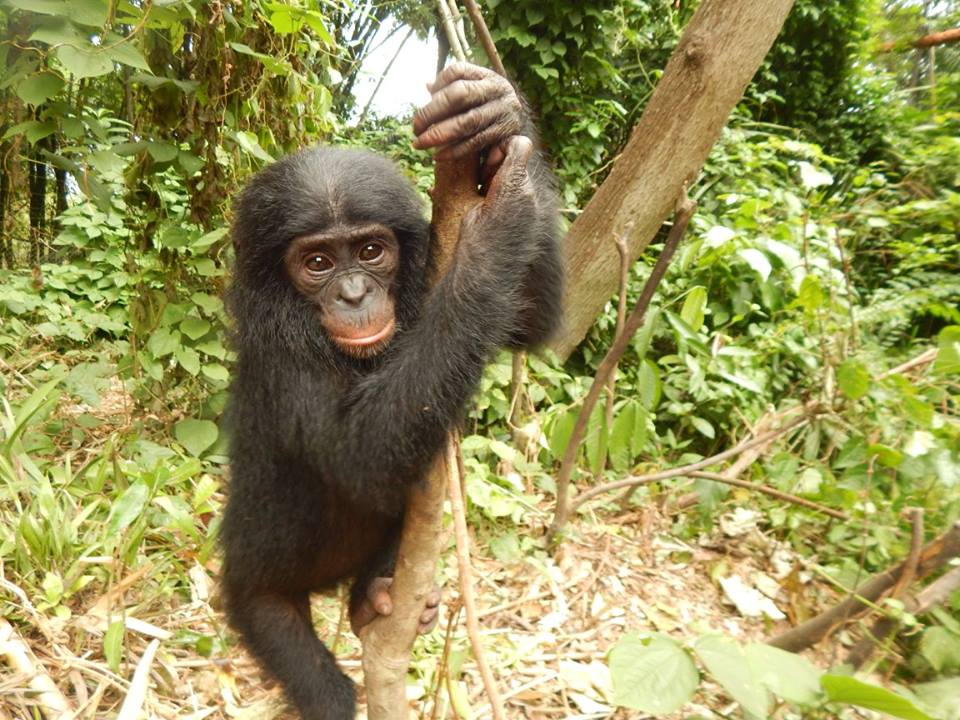
An orphaned bonobo at Lola ya Bonobo
The Centre de Rehabilitation des Primates de Lwiro is a primate sanctuary created in 2002, during the final years of Africa’s World War when poaching was skyrocketing. CRPL gives a second chance to chimpanzees, 11 species of monkeys, parrots, turtles, hyrax and porcupine. All are victims of poaching and the pet trade. With an impressive education program, they reach over 3,000 people per year and are developing a reintroduction program in order return animals to the wild.
In many African countries, it is considered taboo to eat great apes, so traps set are actually directed towards smaller species. While traps such as these (e.g. snare traps) still pose a great threat to apes as well, DRC is unique in that local beliefs and witchcraft believe consuming certain parts of great apes are medicinally beneficial and so they are directly hunted. Add to this the ever growing demand for baby apes and the future appears uncertain. Incredibly, three PASA sanctuaries are defying the odds by not only rescuing orphaned apes, but also educating the public and working with local law enforcement to protect the beauty and diversity found in this incredible place. Now more than ever, they need our support. Please consider donating to these heroes for wildlife.
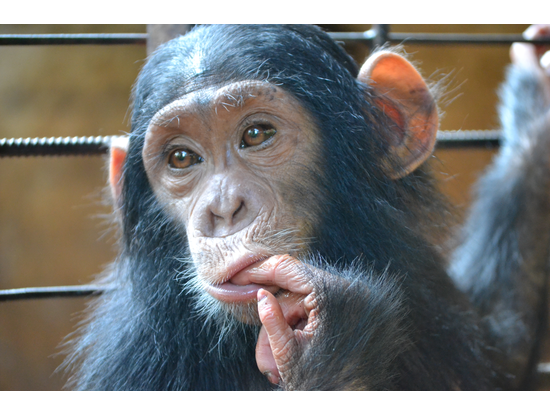
A young chimpanzee who was rescued by Lwiro
Next Posts
Hope for Baby Tita
Poachers tried to take everything from Tita. Against all odds, she thrived.
Visiting Tacugama: An Unexpected Paradise
PASA volunteer, Matt Brunette, visits Tacugama Chimpanzee Sanctuary in Sierra Leone – and lives to tell the tale!
Bringing Out the Wild
How Caroline Griffis helps PASA’s primates maintain their natural behaviors despite their traumatic pasts.
Strengthening Our Community Through Collaboration
PASA’s annual Strategic Development Conference brings our alliance together to work on protecting Africa’s endangered and threatened primates.
A Reflection on Claudine Andre, a Hero for Bonobos – Part II
In 2002, Andre opened Lola ya Bonobo, “Paradise of the Bonobos,” located just outside Kinshasa.
A Reflection on Claudine Andre, a Hero for Bonobos – Part I
Her pioneering work showed that bonobos are extremely affectionate and highly dependent on physical contact to maintain close social bonds.
Pests: One Man’s Pest is Another Man’s Protected Species?
Exploring the conservation and management of “pest” species.
Building Leadership Across Africa’s Sanctuaries
How PASA’s Leadership Development Grant is changing the game for sanctuary staff.
PASA Sanctuary Director Receives Recognition from Jane Goodall
PASA member sanctuaries are led by incredible individuals, who are pioneers in their field.
Why Monkeys Don’t Belong in Your Living Room
Baby chimpanzees aren’t the only primates that are targeted in the pet trade.

